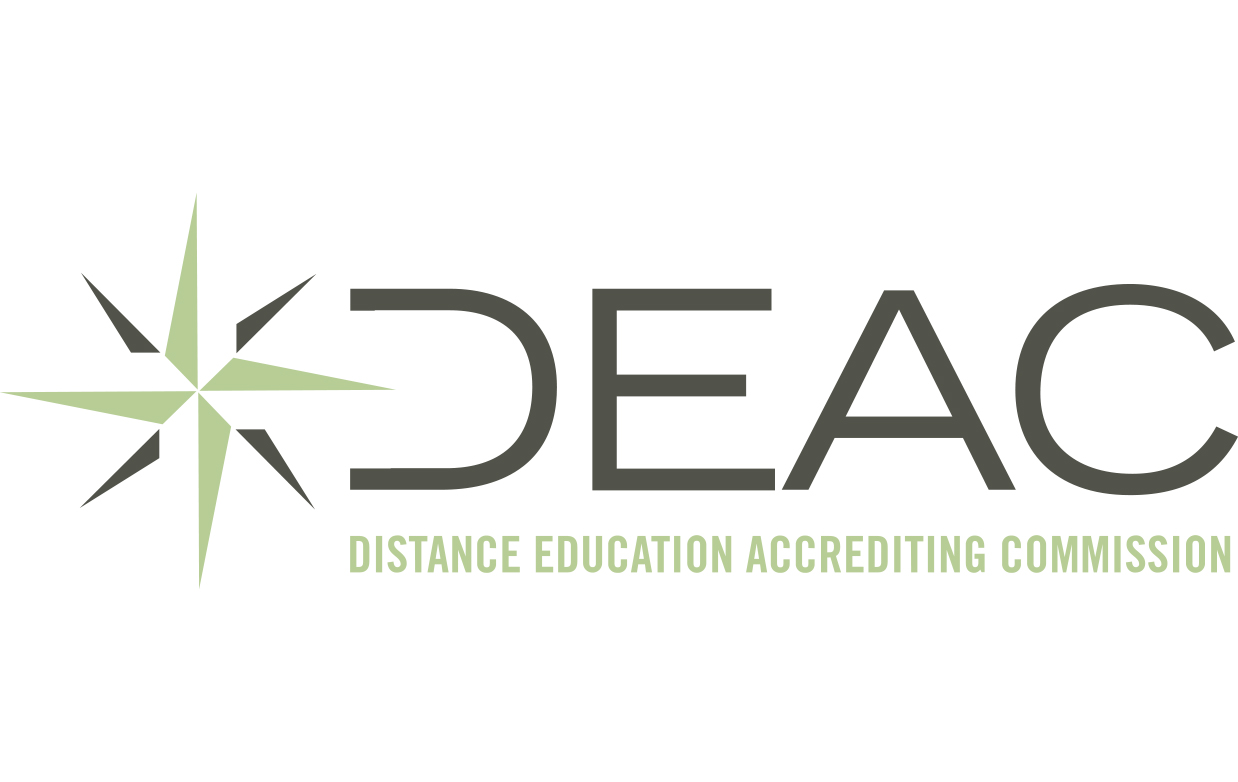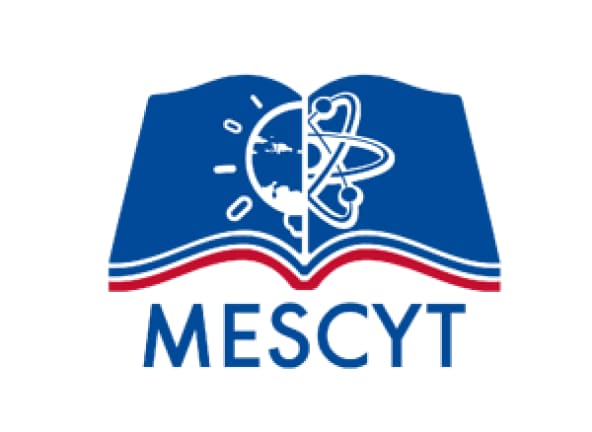

Master’s Degree in Educational Leadership, Management, and New Technologies
Confidently step into leadership roles in educational institutions. Design innovative strategies that improve the quality of learning and motivate both students and faculty to build a promising future.
Apply for a scholarship


Format 100% Online

Start date May 2025

US Degree Accredited

Language English
Become the expert the education sector needs
This master’s degree prepares you to lead educational projects leveraging the power of new technologies. You will be equipped to successfully navigate the transformation of a constantly evolving sector.
Develop the analytical mindset necessary to identify weaknesses in existing education initiatives and design solutions, planning and managing innovative projects that address the sector’s technological needs, which is so critical for future generations.
Develop theoretical knowledge and practical skills in areas including oral communication, problem resolution, critical thinking, team building, and strategic management.
When you finish your degree, you will also be equipped to plan Human Resources activities according to team members’ personalities and professional skillsets.
What will you learn during your Master’s in Educational Leadership, Management, and New Technologies?
Study different leadership models and their implementation, strategies to drive collaborative management, change and conflict management, new developments in education technology, and much more. Become a leader in education, designing and managing programs that improve the academic experience for both students and faculty. You will:
- Develop a deep understanding of the education sector, its challenges, and its potential.
- Learn how to use new technologies for institutional management.
- Gain the skills necessary to plan, manage, and execute innovative projects.
- Learn about leadership and administrative roles in educational institutions.

Format
We offer this degree in an online learning format to give you maximum flexibility. Advance at your own pace, anytime and anywhere.
Online
Tuition
Per credit
Fees
Start date
May 2025
Language
English
Duration
18 months (5 semesters)
Application fee
- $50 (U.S. residents).
- $150 (international students).
Highlights
- Accredited by DEAC.
- Live and recorded classes.
- Maximum flexibility.
- Classes in English.
- U.S. degree.
Scholarships
See all the scholarships we have available for those who qualify, along with our no-interest payment plans. If you have any questions about your personal situation, we are here to help.
Career opportunities
AVERAGE SALARY
EMPLOYABILITY
The rise of new technologies has had an enormous impact on every sector, including one of the most traditional ones: education. Given this reality, many academic institutions need professionals who understand these changes and leverage the power of technology to transform the academic experience for the better.
Earning a Master’s Degree in Educational Leadership, Management, and New Technologies at MIU prepares you to take on leadership roles including:
- High school teacher or principal.
- E-learning project manager.
- Public or private school administrator.
- Corporate training director.
- Education manager.

Success stories

Melvin Vidal Rodríguez De la Cruz
Executive Manager
He manages consulting firms that deliver outsourced tax and HR services to 62 businesses in the Dominican Republic.

Ingla Damyanti Madho
HR Manager
She is responsible for recruitment, employee relations, performance management, and strategic HR planning to drive company success.

Ana Laura Chiban
Project Manager Specialist - Logistic Home Renovation
She is responsible for assigning tasks and communicating with project stakeholders to determine project requirements and objectives.

Carlos Wandy Martínez de Aza
Teacher
He works in a community of 1,800 students facing social and socioeconomic challenges, teaching Math, Spanish, Social Studies, and Natural Sciences for 8 hours a week.

Hipolito Enmanuel Nuñez Muñoz
Control Room Operator
He has 7 years of experience in monitoring and controlling a coal-fired power plant.

Stephanie Natasha Samsair
PhD student in Process Engineering
She studies the technical and managerial aspects of process engineering.

Christa Rose Marie Lewis
Graphic Designer - Ministry of Education and National Reconciliation of St. Vincent and the Grenadines.
She is in charge of developing visual designs and illustrations to support the promotion and production of curricular guides, manuals, assessment materials, and multimedia content

Euler Caruajulca Colunche
HR Selection and Training Assistant
He is in charge of the employee selection process and helps train company personnel
Study plan
36 Credits
At MIU, each academic term lasts 15 weeks, equivalent to one semester in the U.S. education system. We have three semesters each year: from January to May, from May to August, and from August to December.
See all the courses included in your degree program.
First year
1st semester
Leadership and Change Management in Education
MEL510
3 US Credits
This course will focus on individual, team, and organizational leadership and will provide learners with the foundation for examining and developing their own individual leadership style. The work of a leader is to constantly look forward and provide the necessary changes for the organization, being the visionary is critical to success in any organization, and a key attribute for any organizational leader. As a result, this course will focus on Leadership and Change Management. In doing so, the leader’s role as a change agent will be a focus of the course. Understanding various methods of bringing about change will be provided and researched by learners, and then discussed in our time together. The course will also delve into and explore numerous aspects of leadership including but not limited to horizontal and vertical leadership, formal and informal leadership, team leadership, performance, ethics, and authenticity. In addition, various models of change will be introduced and explored.
Course Outcomes:
1) The student will be reinforced in the knowledge and understanding of the different ways a leader can promote an educational institution to the community.
2) The student will be assessed in the ability to identify challenges in managing change and helping people navigate through it.
3) The student will be able to master the strategies for managing the daily demands of leadership: conducting meetings, managing conflict, time management, negotiation, and communication.
4) The student will be introduced to the nature of leadership and the hallmarks of effective leadership.
Innovation, Quality, and Educational Models
MEL570
3 US Credits
The course provides the student with a complete knowledge of educational innovation in the fields of the direction and management of educational centers. The final objective of the course is to train the student to analyze the need to implement innovation projects, design these projects and examine their possible impact on the school. To do this, we start from the analysis of different educational systems, the keys to school success and the understanding of the concept and implications of educational innovation in today’s information society. Different current ways of thought on the need for change are also examined through the development of innovative actions.
The course allows to deepen in the conditions, agents and elements involved in the development of innovation in a school, especially in the role of teachers, the relationship between innovation and leadership, and the organizational and institutional determinants that affect educational innovations. The important role of the digitalization of information and communication is emphasized to increase the success of teaching-learning processes and the incorporation of elements that allow the development of virtual teaching-learning environments as key innovative actions in the information society.
The implementation and analysis of the innovation process is framed and related to educational research based on action in real educational contexts. On the other hand, it aims for students to be able to lead and develop quality and improvement programs in schools with an orientation towards excellence.
At the same time, it addresses theoretical-practical postulates related to the field of quality in and education, empowering students for the analysis, reflection and areas of application of the different options for improvement and innovation that allow the implementation of a quality culture in educational centers and the role of evaluation in these improvement processes.
For this, an approach to the concept of quality in education and quality of education is proposed through the planning being an essential element for the implementation of quality processes and the relationship between quality orientation and the promotion of innovation.
On the other hand, content is presented for students to access the knowledge necessary to diagnose, design and implement improvement proposals, knowing and analyzing a wide range of perspectives, tools and resources.
Course Outcomes:
1) The student will be reinforced in the concept and implications of educational innovation in today’s information society.
2) The student will be introduced to the role of digitalization of information and communication with a focus on teaching-learning processes.
3) The student will master the implementation of innovation projects and assess the impact analysis of their innovation projects. This will be accomplished through the design of innovation projects and examination of their possible impact on the school.
Organization and Strategic Management of Educational Institutions
MEL580
3 US Credits
management that provides a unique identity, acting as facilitators in the structure of educational complexity. The purpose of this course is to determine the facilitating agents and processes of said complexity, for which the acquisition of knowledge related to school organization and the effective management of educational institutions is essential. Therefore, it is unfailing to address content related to the directive and managerial function in the organization of a school, the strategic management of educational institutions as well as the directive function (the director and his or her teams), which help in the tasks of leadership and management of educational centers. On the other hand, the planning, coordination and management control structures will be analyzed, as well as the documents that help to this end and that will develop tools, in themselves, for evaluating centers.
Finally, it is considered necessary to achieve knowledge related to the most relevant organizational aspects in these institutions, where space, time and teaching coexistence are framed, as well as the strategies that determine planning, development and evaluation that facilitate counseling in the educational orientation, allowing the development of tools and value indicators of the entire educational community.
Course Outcomes:
1) The student will be introduced to the current education legislation and regulations, in the national and international frameworks, and be able to implement them appropriately in the management of educational institutions.
2) The student will master the differentiation of methodological alternatives to enable a collaborative management, enhancing cooperation and participation in educational institutions.
3) The student will reinforce their knowledge related to directive and managerial processes in educational institutions to be able to understand and develop strategies and procedures for organizing, planning, performing, supervising and assessing results in the scope of educational institutions.
4) The student will reinforce the analysis of fundamental abilities and skills in order to encourage coexistence in a variety of educational environments, and be able to deal efficiently with potential conflicts
2nd semester
Organizational Structures and Curriculum
MEL540
3 US Credits
This course will focus on the role and responsibilities of a leader as an ethical role model, decision-maker, and teacher. Students will review and analyze current ethical issues for professional learning communities, through the use of case studies and a problem-based approach to learning, students will have an opportunity to analyze and develop their decision-making skills within the context of an ethical and moral framework.
Course Outcomes:
1) The student will be introduced to the role and responsibilities of a leader as an ethical role model, decision-maker, and teacher.
2) The student will be reinforced in the analysis of current ethical issues for professional learning communities, using case studies and a problem-based approach to learning
3) The student will master the ability to analyze and develop their decision-making skills within the context of an ethical and moral framework
Styles and Approaches in Leading and Managing Change: International Case Studies
MEL550
3 US Credits
This program is designed to help you develop a framework for change within the context of your own organization. Throughout this program, you will progress from analyzing your change initiative, through the design of a framework for change, to developing a unique model for accelerating the process in your organization. This course examines how and why individuals and organizations resist change, and the skills that leaders need to overcome these obstacles. It combines different educational approaches to provide an in-depth understanding of the importance of talent development to organizational success.
Course Outcomes:
1) The student is assessed in the how to analyze a change initiative, through the design of a framework for change, to developing a unique model for accelerating the process in your organization.
2) The student is reinforced in how and why individuals and organizations resist change, and the skills that leaders need to overcome these obstacles.
3) The student is introduced to different educational approaches to manage change providing an in-depth understanding of the importance of talent development to organizational success.
Managing Conflict, Power and HR Policies
MEL560
3 US Credits
This subject focuses on the different processes that are available for resolving conflict, including negotiation, conciliation, mediation, arbitration, litigation, facilitation, and collaborative and restorative justice processes. Students consider the differences between the various processes and develop the capacity to evaluate which process is most suitable for a particular conflict situation. It also considers the ethical issues that may arise in managing and resolving conflict in a wide range of contexts. Students learn about a range of ethical decision-making processes.
Course Outcomes:
1) Students are introduced to different processes for resolving conflict, including negotiation, conciliation, mediation, arbitration, litigation, facilitation, and collaborative and restorative justice processes.
2) The students master the evaluation and decision of which processes are most suitable for a particular conflict situation.
3) The students are reinforced in a range of ethical decision-making processes.
Second year
3rd semester
Emerging ICT Trends and Socio-Cultural Changes in Education
MEL610
3 US Credits
While many organizations have outsourced the design of production systems, there is still a need to provide specifications for those systems. In addition, the recent Internet and e-commerce explosion has created an even wider need to design corporate web sites. Organizational practices must exist to make sure designers and developers take into account what we know about human factors engineering. This course focuses on how to gather requirements, achieve a usable first draft, and test and improve that draft. A half-dozen course projects include usability critiques, assessments of users’ difficulties in understanding systems, and designs of forms, screen layouts, and icons.
Course Outcomes:
1) The student will master the use of ICT in the classroom in the context of modern pedagogical principles.
2) The student is introduced to the use of mobile devices as support for the attainment of educational objectives.
3) The student is reinforced in the value of critical thinking when using Internet resources.
4) The student is introduced in the application of the flipped classroom methodology using ICT tools.
5) The student is reinforced the use of assessment in the classroom using digital technologies.
6) The student is introduced to the concept of gamification and understand its use in educational settings.
Human Resources Management
MEL620
3 US Credits
The analysis of the relationship between people and their jobs is a very important issue, because of its scientific, business, and ethical. Human beings represent, according to the organization needs, one of the main sources of competitive advantage and a successful strategic factor for business. Starting from the most recent technical and cultural orientations about human resources management, the course deeply analyzes the role of the person within the complex organizations, aiming to the acquisition of specific competences for the human resources management as strategic resource in the development and organization learning paths. The program is structured in two modules: the former deals with the management tools for the competences assessment; the latter deals with the analysis of the organization.
Course Outcomes:
1) The student will gain a reinforced understanding of the relationship between organizational strategy and human resources strategy.
2) The student will be reinforced in the ways in which the human resources function helps the attainment of organizational goals.
3) The student will be introduced to the concept of competencies and understand how its role in human resources management.
4) The student will Ibe reinforced in how training and development can be managed, planned, and implemented.
5) The student will master the ways companies set objectives for their employees and how to assess performance based on these objectives.
4th semester
Leadership and Business Information Systems
MEL630
3 US Credits
The course focuses on both leadership and change management providing learners with the foundations for examining and developing their own individual styles. The work of a leader is to constantly look ahead and to provide the changes that are necessary for the organization to keep abreast of the evolution of its environment. An intelligent foresight is critical to success in any organization and a key attribute for any organizational leader. A leader’s role as a change agent will therefore be the focus of the course. Providing both theoretical frameworks and practical examples will enable the understanding of how change can be initiated and implemented. The latter are drawn from two cases that are explained in-depth during the lessons. Learners can study them then comment on them in our time together. The course investigates different kinds of leadership such as transactional, transformational, and distributed leadership. It addresses key issues concerning leadership building in organizations and teams, performance management, and knowledge sharing.
Course Outcomes:
1) The student will be reinforced in the understanding of the role of leadership in creating a positive and safe environment towards the well-being of the employees.
2) The student will master the concept of psychological capital and understand how it can be used to foster psychological health at the workplace.
3) The student will be introduced to legal principles that guide health and safety in the workplace.
4) The student will be reinforced on the main physical risks for health and safety in the workplace and how to create plans for safety and well-being.
5) The student will be introduced to the psychosocial risks in the workplace and how to minimize them.
6) The student will be reinforced in the concepts of burnout and engagement and ways to foster engagement, while reducing burnout.
Design and Development of New Educational Products/Services
MEL640
3 US Credits
The objective of this course is to examine basic areas such as recruitment, career development, performance appraisal and rewards, job design. It will also explore current issues of diversity and identity at work, the role of unions, and the changes occurring within the organizational environment. Discussions will include practices among the public, non-profit and for-profit sectors. Areas will include administrative supervision techniques for educational institutions, administrative office, public, and private organizations, and associations. Topic includes skills needed for planning, organizing, staffing, directing and controlling, communicating, motivating, decision-making, priority setting and time management leading toward effective objectives and organizational goals.
Course Outcomes:
1) The student will be introduced to the concept of Human Resources Information Systems management.
2) The student will the types of assistance the Human Resource Department provides.
3) The student will have a reinforced understanding of the relationship between human resource managers and operating managers.
4) The student will master how human resource managers can affect organizational performance and the role of human resource managers in the future.
5th semester
Leadership Management Capstone Project
MBA660
6 US Credits
This graduate course emphasizes practical research skills utilized by education practitioners. Students will develop an action research project based on the scientific method and concepts. The culminating product will reflect critical thinking, graduate level writing skills, and correct APA format. This course is open only to students pursuing the Education Leadership Management.
Prerequisite(s): Students are required to complete all other program credits before registering for the capstone project course.
Course Outcomes:
1) The student will be introduced to academic research through the preparation of an applied thesis that will follow the current MIU guide to prepare said document.
2) The student will be reinforced on the presentation the research methodology, clearly explaining the research design, the sampling strategies, the instruments used, the methods data collection and data analysis.
3) The student will master the formal presentation and defense of their research as evaluated by the faculty jury members.
4) The students will be reinforced on the use of APA style formatting in the creation of an academic research thesis
Why study at MIU?
Earning your Master’s Degree in Educational Leadership, Management, and New Technologies at MIU will accelerate your professional career, preparing you for today’s business world. If you take this degree program with us, you can enjoy:
- A U.S. degree adapted to the needs of the American global market.
- Access to quality networking that connects you with students from all over the world, broadening your horizons and your opportunities.
- Flexible methodology that includes onboarding, personal advising, live and recorded classes, 24/7 technical support, and access to all the online resources.
- Affordable prices and a simple enrollment process for easy access to a high-quality education.

Keep learning: add a specialization
Deepen your knowledge and stand out from the competition with our Continuing Education Certificate programs.
Corporate Finance
Optimize your company's financial management to gain a competitive edge.
Digital Marketing 360º
Learn effective strategies to connect with your audience and grow your business.
Digital Project Management
Master the tools and methodologies to lead multidisciplinary teams and manage complex projects.
Data & Business Analytics
Make decisions based on strategic data analysis.
Strategic Management and Organizational Leadership
Learn how to lead teams and navigate crises effectively.
Emotional Intelligence and Positive Discipline
Support your students’ talents and help them grow.
Skills for Lawyers
Adapt to the ever-changing demands of the legal profession.
Legal Tech
Become a sought-after legal expert in the digital marketplace.
E-commerce and Digital Business Management
Explore the latest trends and find new business opportunities in e-commerce.
Data Science
Master the techniques of data mining and data processing.
Design Management
Lead creative projects with successful brand communication strategies.
Cybersecurity
Develop a strategic vision to implement effective digital protection protocols.
Quality and Patient Safety
Become a healthcare professional capable of managing risks and crisis situations.
Student profile
This Master’s in Educational Leadership, Management, and New Technologies is intended for people seeking to build their professional career or improve their employability in the education sector through specialized knowledge in leadership, innovation, and management.
Testimonials



Requirements
To apply for this program, you must submit the following:
- Your bachelor’s or master’s degree diploma.
- Copy of your passport or official ID.
- Completed application form.
- Updated resume.
If you are not a U.S. resident or English is not your native language, please check the additional requirements.

Key dates
- Fall semester: September – December
- Enrollment: August
- Spring semester: January – May
- Enrollment: December
- Summer semester: May – August
- Enrollment: April

A leader in online education
We are proud to be part of PROEDUCA Universidades, an educational group at the forefront of online learning at the international level. This allows us to offer you a high-quality U.S. education at a competitive and affordable price.
MIU City University Miami is accredited by the Distance Education Accrediting Commission (DEAC) licensed by the Florida Commission for Independent Education of the Florida Department of Education.
COUNTRIES
STUDENTS
YEARS OF EXPERIENCE

MIU City University Miami is accredited by the Distance Education Accrediting Commission (DEAC) licensed by the Florida Commission for Independent Education of the Florida Department of Education.



Request information
To apply for this master's program, you must hold a bachelor's degree.
$7,000
$194 USD credit